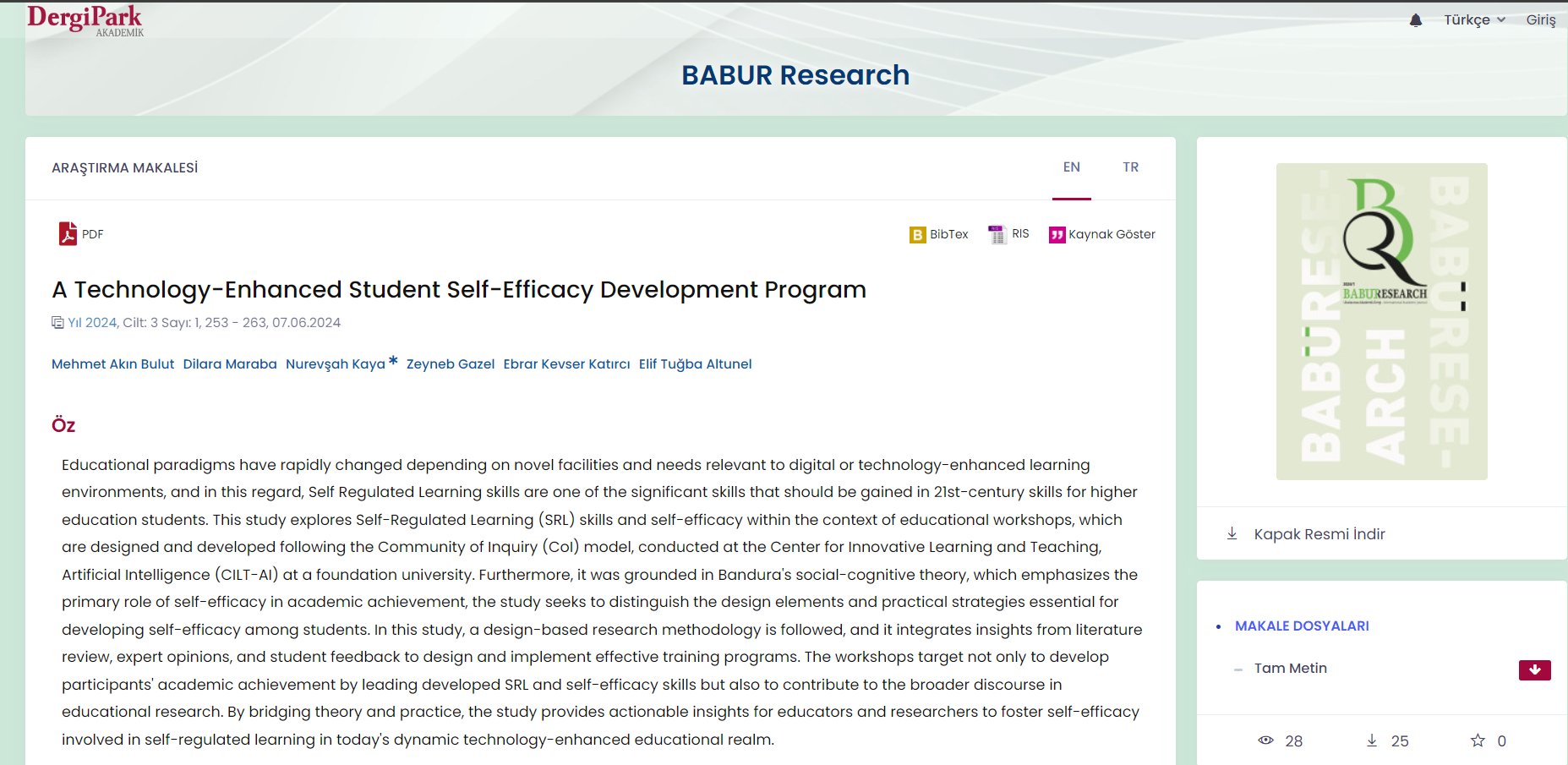


Based on Bandura's social-cognitive theory, this study emphasizes the critical role of self-efficacy in academic success. The researchers meticulously designed an educational workshop based on the Community of Inquiry (CoI) model, aiming to develop self-efficacy in the scope of self regulated learning skills of students. These workshops were adapted to meet the needs of 21st-century learners by addressing the new demands of technology-focused educational environments.
Using a research methodology based on the 'Design-Based Research' model, the study conducted comprehensive literature reviews, expert opinions, and student feedback to develop and implement effective educational programs.
This research offers applicable insights for educators and researchers, bridging the gap between theory and practice. Focusing on key design elements and practical strategies for developing self-efficacy, the study provides a solid framework for promoting self-regulated learning in today's dynamic educational environment. The findings of this study highlight the need for innovative teaching strategies that empower students and support their academic success. As educational paradigms continue to evolve, this research is evidence of the importance of adapting to new technologies and methods to enhance learning outcomes.
To see the whole article click